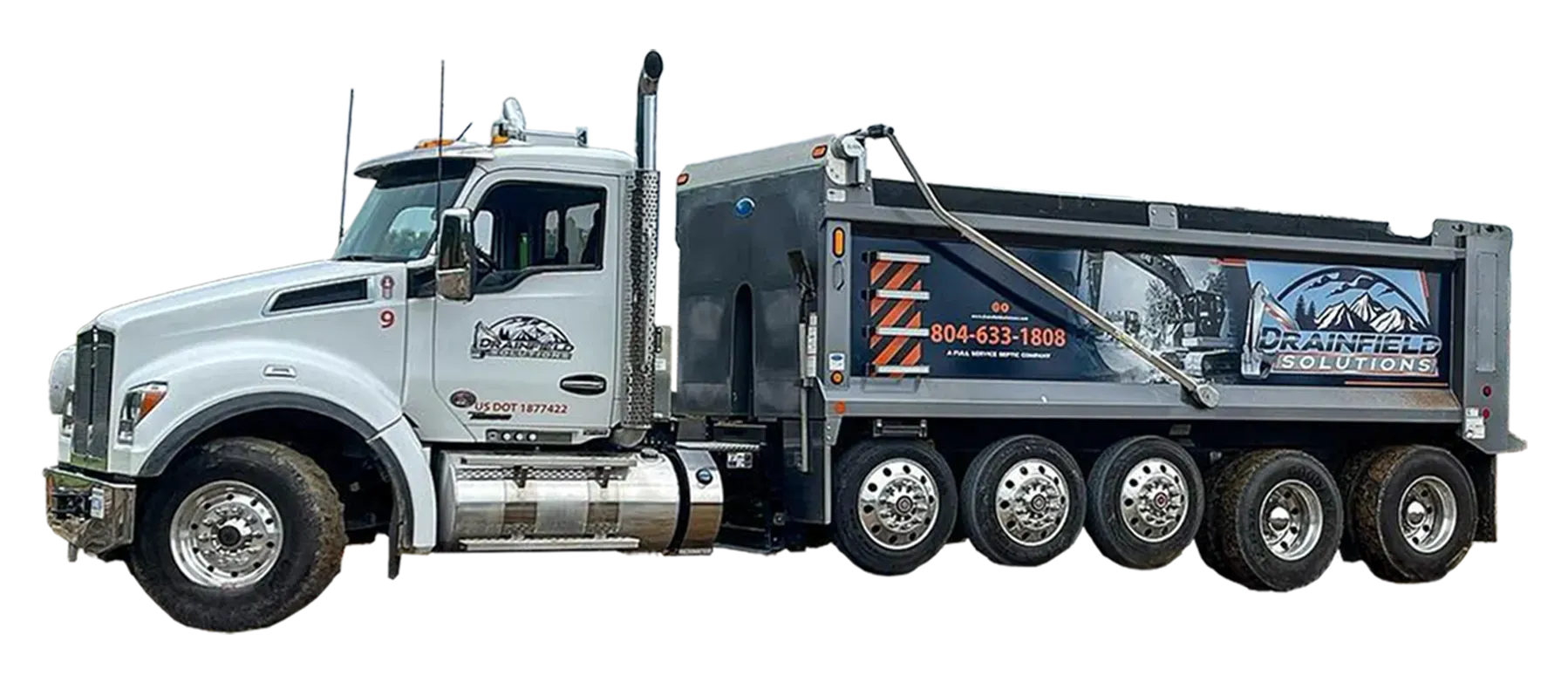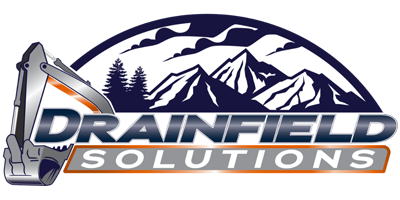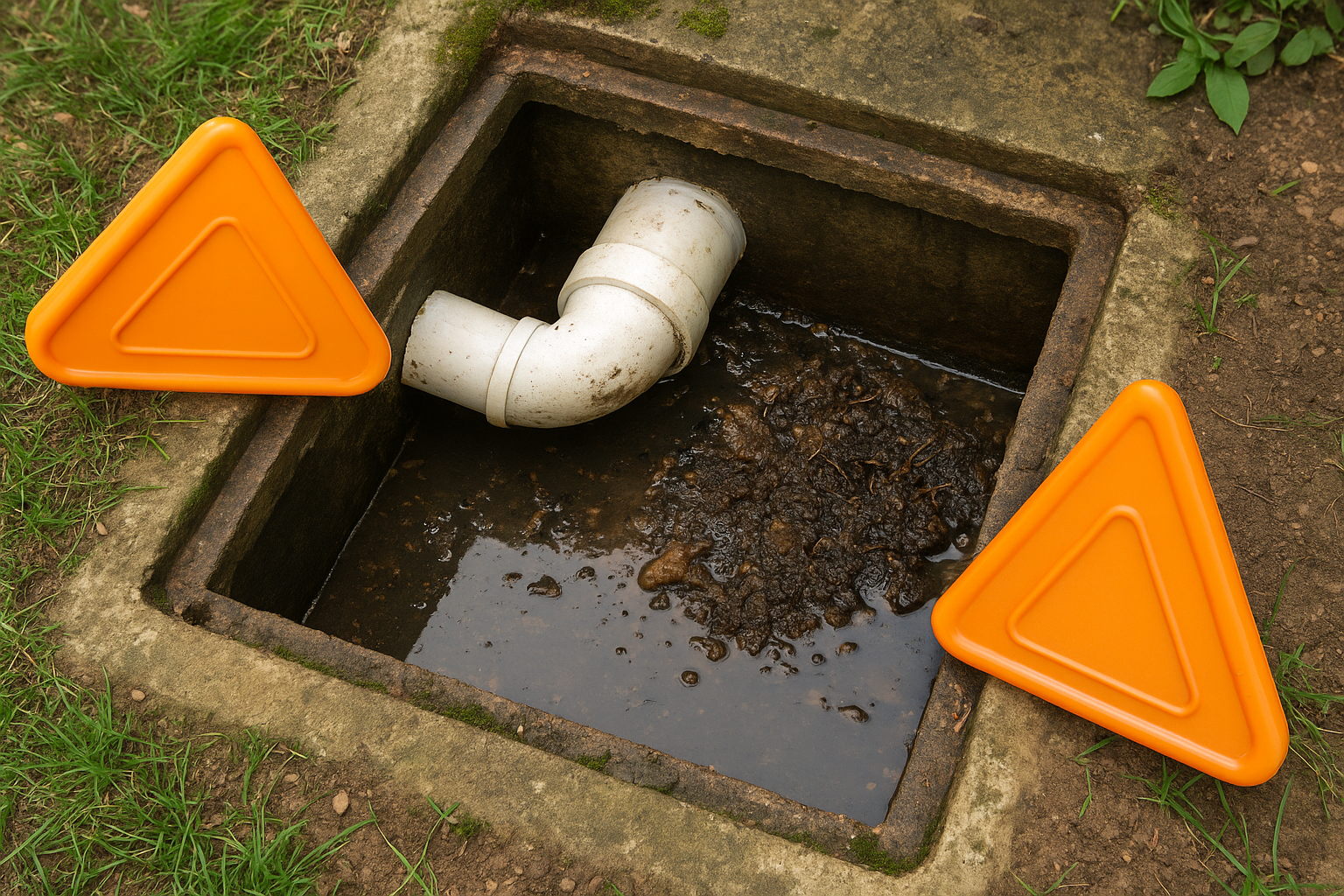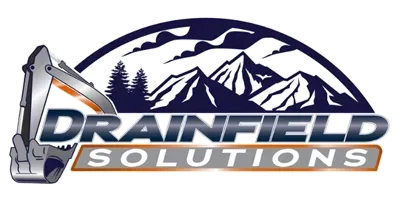
10 Factors to Consider Before Installing a Septic Tank
November 27, 2024
Thinking about installing a septic tank in Central Virginia? Whether you're building a new home or upgrading your existing system, getting the installation right is crucial.
This guide dives into what you need to know before taking the plunge, ensuring you avoid future headaches and maintain a smoothly operating system.
Understanding Septic Tank Basics
When it comes to managing waste, septic tanks are unsung heroes. They efficiently process wastewater from your home, separating solids from liquids and allowing clean effluent to enter the drain field. Ensuring your septic system is properly sized and located is key to its effectiveness.
A septic system typically includes a tank and a drain field. Wastewater from your home flows into the tank, where solids settle to the bottom, forming sludge. This sludge needs regular removal to prevent buildup, which is why septic tank cleaning in Fredericksburg, VA, and beyond is so important.
Location, Location, Location
Choosing the right location for your septic tank and drain field installation is paramount. The site must be accessible for maintenance but far from water sources to prevent contamination. Your installer will assess your property’s soil type and local regulations to determine the best spot.
Proximity to your home, landscaping, and potential tree root intrusion are also considerations. Keeping your tank and drain field away from driveways or heavy traffic areas prevents damage over time.
Soil Matters More Than You Think
The soil on your property plays a significant role in the success of your septic system. Percolation tests measure how quickly the soil can absorb water, which determines the size and type of system you need. Sandy soils drain well, while clay soils may require special solutions.
Good soil conditions ensure that your drain field can effectively filter and disperse wastewater. If your soil doesn’t pass percolation tests, alternative solutions like mound systems might be necessary.
Local Regulations and Permits
Septic system installation isn’t just about digging a hole and burying a tank. Local regulations govern everything from system design to maintenance schedules. Obtaining the right permits ensures your system complies with health and safety standards.
Regulations can vary significantly, so working with a knowledgeable installer familiar with your area’s rules is crucial. They’ll help you avoid fines and ensure your system is both efficient and legal.
System Size and Household Needs
The size of your septic tank should match your household’s water usage. An undersized tank can lead to frequent overflows and systemic failures, while an oversized one might be an unnecessary expense. Consider factors like family size, number of bathrooms, and laundry habits.
Professional installers calculate the ideal tank size using these variables. Proper sizing means fewer pumping sessions and a longer lifespan for your system, preventing issues down the line.
Cost Considerations and Budget Planning
Installing a septic tank is an investment, and costs can vary based on system size, complexity, and local labor rates. While it might be tempting to cut corners, investing in quality components and skilled labor saves money in the long run.
Budgeting for regular maintenance, including septic tank pumping services in Central Virginia, and other locations, should also factor into your plans. A well-maintained system prevents costly emergency repairs and extends the life of your investment.
The Importance of Professional Installation
While DIY projects have their place, septic system installation isn’t one of them. A professional installer ensures your system meets all technical and regulatory standards. They bring experience and expertise to handle challenges like tricky terrain or unique soil conditions.
Hiring a reputable professional means peace of mind, knowing your system is built to last and operate efficiently. They’ll also provide valuable advice on maintenance and care, helping you avoid common pitfalls.
Maintenance and Long-Term Care
A septic system isn’t set-and-forget. Regular maintenance, including pumping and inspections, keeps your system running smoothly. Ignoring maintenance can lead to backups, unpleasant odors, and costly repairs.
Establish a routine for septic tank cleaning, particularly in high-demand areas like Fredericksburg, VA. Stay ahead of potential issues by scheduling regular inspections and keeping detailed records of all maintenance activities.
Environmental Impact and Sustainability
A well-installed septic system can be an environmentally friendly way to manage waste. It treats wastewater naturally, reducing pollutants before they reach the groundwater. However, poor installation or neglect can lead to environmental damage.
Consider eco-friendly products and practices that complement your septic system. Avoiding harsh chemicals and excessive water use protects your system and the environment, promoting sustainability.
Potential Challenges and Troubleshooting
Even with the best installation, problems can arise. Common issues include clogs, leaks, and slow drainage. Knowing the warning signs and addressing them promptly minimizes damage and repair costs.
Educate yourself on basic troubleshooting techniques. Understanding your system’s normal operation helps identify when something is amiss, allowing for swift action to prevent escalation. Call for septic tank cleaning services in Fredericksburg, VA when the problem gets out of hand.
Benefits of Regular Professional Inspections
Professional septic systems inspection services ensure your system operates at peak efficiency. Inspectors can detect early signs of trouble and recommend preventative measures, saving you from surprise failures.
Schedule inspections regularly and listen to the advice of experienced professionals. Their insights and recommendations are invaluable in maintaining a healthy system.
Preparing for Future Upgrades
Technology and regulations continue to evolve. Staying informed about advancements in septic systems allows you to plan for future upgrades that enhance efficiency and compliance.
Keep an eye on emerging technologies and consider upgrading your system over time. Improved materials and techniques can offer better performance and longevity.
Conclusion
Installing a septic tank is a significant undertaking, but with careful planning and professional guidance, it can provide years of dependable service. By considering factors like location, soil, regulations, and maintenance, you ensure the health and longevity of your system.
For those ready to explore more about septic tank installation or need expert advice, contact professionals at Drainfield Solutions. Whether it's septic tank cleaning in Central Virginia, or a complete system overhaul, we have got you covered! Your septic serenity is just a well-planned installation away.
Share Post
Latest Posts
Ready to Take the Next Step?
Whether you're in need of a system inspection or regular maintenance, Drainfield Solutions is here to help. Get in touch today for reliable service you can trust.






